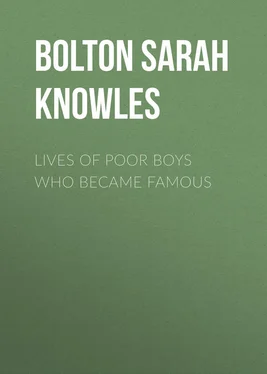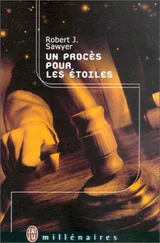Sarah Bolton - Lives of Poor Boys Who Became Famous
Здесь есть возможность читать онлайн «Sarah Bolton - Lives of Poor Boys Who Became Famous» — ознакомительный отрывок электронной книги совершенно бесплатно, а после прочтения отрывка купить полную версию. В некоторых случаях можно слушать аудио, скачать через торрент в формате fb2 и присутствует краткое содержание. ISBN: , Жанр: foreign_prose, foreign_antique, Биографии и Мемуары, foreign_language, на английском языке. Описание произведения, (предисловие) а так же отзывы посетителей доступны на портале библиотеки ЛибКат.
- Название:Lives of Poor Boys Who Became Famous
- Автор:
- Жанр:
- Год:неизвестен
- ISBN:http://www.gutenberg.org/ebooks/35950
- Рейтинг книги:4 / 5. Голосов: 1
-
Избранное:Добавить в избранное
- Отзывы:
-
Ваша оценка:
- 80
- 1
- 2
- 3
- 4
- 5
Lives of Poor Boys Who Became Famous: краткое содержание, описание и аннотация
Предлагаем к чтению аннотацию, описание, краткое содержание или предисловие (зависит от того, что написал сам автор книги «Lives of Poor Boys Who Became Famous»). Если вы не нашли необходимую информацию о книге — напишите в комментариях, мы постараемся отыскать её.
Lives of Poor Boys Who Became Famous — читать онлайн ознакомительный отрывок
Ниже представлен текст книги, разбитый по страницам. Система сохранения места последней прочитанной страницы, позволяет с удобством читать онлайн бесплатно книгу «Lives of Poor Boys Who Became Famous», без необходимости каждый раз заново искать на чём Вы остановились. Поставьте закладку, и сможете в любой момент перейти на страницу, на которой закончили чтение.
Интервал:
Закладка:
[The building fund of £500,000 left by Mr. Peabody for the benefit of the poor of London has now been increased by rents and interest to £857,320. The whole of this great sum of money is in active employment, together with £340,000 which the trustees have borrowed. A total of £1,170,787 has been expended during the time the fund has been in existence, of which £80,903 was laid out during 1884. The results of these operations are seen in blocks of artisans' dwellings built on land purchased by the trustees and let to working men at rents within their means, containing conveniences and comforts not ordinarily attainable by them, thus fulfilling the benevolent intentions of Mr. Peabody. At the present time 4551 separate dwellings have been erected, containing 10,144 rooms, inhabited by 18,453 persons. Thirteen new blocks of buildings are now in course of erection and near completion. Indeed, there is no cessation in the work of fulfilling the intentions of the noble bequest. — Boston Journal , Mar. 7, 1885.]
BAYARD TAYLOR
Since Samuel Johnson toiled in Grub Street, London, literature has scarcely furnished a more pathetic or inspiring illustration of struggle to success than that of Bayard Taylor. Born of Quaker parentage in the little town of Kennett Square, near Philadelphia, Jan. 11, 1825, he grew to boyhood in the midst of fresh air and the hard work of farm-life. His mother, a refined and intelligent woman, who taught him to read at four, and who early discovered her child's love for books, shielded him as far as possible from picking up stones and weeding corn, and set him to rocking the baby to sleep. What was her amazement one day, on hearing loud cries from the infant, to find Bayard absorbed in reading, and rocking his own chair furiously, supposing it to be the cradle! It was evident, that, though such a boy might become a fine literary man, he could not be a successful baby-tender.
He was especially eager to read poetry and travels, and, before he was twelve years old, had devoured the contents of their small circulating library, as well as Cooper's novels, and the histories of Gibbon, Robertson, and Hume. The few books which he owned were bought with money earned by selling nuts which he had gathered. He read Milton, Scott, Byron, and Wordsworth; and his mother would often hear him repeating poetry to his brother after they had gone to bed. He was always planning journeys in Europe, which seemed very far from being realized. At fourteen he began to study Latin and French, and at fifteen, Spanish; and a year later he assisted in teaching at the academy where he was attending school.
He was ambitious; but there seemed no open door. There is never an open door to fame or prosperity, except we open it for ourselves. The world is too busy to help others; and assistance usually weakens rather than strengthens us. About this time he received, through request, an autograph from Charles Dickens, then lecturing in this country. The boy of sixteen wrote in his journal: "It was not without a feeling of ambition that I looked upon it; that as he, a humble clerk, had risen to be the guest of a mighty nation, so I, a humble pedagogue, might, by unremitted and arduous intellectual and moral exertion, become a light, a star, among the names of my country. May it be!.. I believe all poets are possessed in a greater or less degree of ambition. I think this is never given without a mind of sufficient power to sustain it, and to achieve its lofty object."
At seventeen, Bayard's schooling was over. He sketched well, and would gladly have gone to Philadelphia to study engraving; but he had no money. One poem had been published in the "Saturday Evening Post." Those only who have seen their first poem in print can experience his joy. But writing poetry would not earn him a living. He had no liking for teaching, but, as that seemed the only thing at hand, he would try to obtain a school. He did not succeed, however, and apprenticed himself for four years to a printer. He worked faithfully, using all his spare hours in reading and writing poetry.
Two years later, he walked to Philadelphia and back – thirty miles each way – to see if fifteen of his poems could not be printed in a book! His ambition evidently had not abated. Of course no publisher would take the book at his own risk. There was no way of securing its publication, therefore, but to visit his friends, and solicit them to buy copies in advance. This was a trying matter for a refined nature; but it was a necessity. He hoped thus to earn a little money for travel, and "to win a name that the person who shall be chosen to share with me the toils of life will not be ashamed to own." This "person" was Mary Agnew, whose love and that of Bayard Taylor form one of the saddest and tenderest pictures in our literature.
At last the penniless printer boy had determined to see Europe. For two years he had read every thing he could find upon travels abroad. His good mother mourned over the matter, and his acquaintances prophesied dire results from such a roving disposition. He would go again to Philadelphia, and see if the newspapers did not wish correspondence from Europe. All the editors politely declined the ardent boy's proposals. Probably he did not know that "unknown writers" are not wanted.
About to return home, "not in despair," he afterwards wrote, "but in a state of wonder as to where my funds would come from, for I felt certain they would come," the editor of the "Saturday Evening Post" offered him four dollars a letter for twelve letters, – fifty dollars, – with the promise of taking more if they were satisfactory. The "United States Gazette" made a similar offer, and, after selling a few manuscript poems which he had with him, he returned home in triumph, with a hundred and forty dollars in his pocket! "This," he says, "seemed sufficient to carry me to the end of the world."
Immediately Bayard and his cousin started on foot for Washington, a hundred miles, to see the member of Congress from their district, and obtain passports from him. Reaching a little village on their way thither, they were refused lodgings at the tavern because of the lateness of the hour, – nine o'clock! – and walked on till near midnight. Then seeing a house brilliantly lighted, as for a wedding, they approached, and asked the proprietor whether a tavern were near by. The man addressed turned fiercely upon the lads, shouting, "Begone! Leave the place instantly. Do you hear? Off!" The amazed boys hastened away, and at three o'clock in the morning, footsore and faint, after a walk of nearly forty miles, slept in a cart standing beside an old farmhouse.
And now at nineteen, he was in New York, ready for Europe. He called upon the author, N. P. Willis, who had once written a kind note to him; and this gentleman, with a ready nature in helping others, – alas! not always found among writers – gave him several letters of introduction to newspaper men. Mr. Greeley said bluntly when applied to, "I am sick of descriptive letters, and will have no more of them. But I should like some sketches of German life and society, after you have been there, and know something about it. If the letters are good, you shall be paid for them; but don't write until you know something ."
July 1, 1844, Bayard and two young friends, after paying ten dollars each for steerage passage, started out for this eventful voyage. No wonder that, as land faded from sight, and he thought of gentle Mary Agnew and his devoted mother, his heart failed him, and he quite broke down. After twenty-eight days they landed in Liverpool, strangers, poor, knowing almost nothing of the world, but full of hope and enthusiasm. They spent three weeks in Scotland and the north of England, and then travelled through Belgium to Heidelberg. Bayard passed the first winter in Frankfort, in the plainest quarters, and then, with his knapsack on his back, visited Leipzig, Dresden, Prague, Vienna, and Munich. After this he walked over the Alps, and through Northern Italy, spending four months in Florence, and then visiting Rome. Often he was so poor that he lived on twenty cents a day. Sometimes he was without food for nearly two days, writing his natural and graphic letters when his ragged clothes were wet through, and his body faint from fasting. But the manly, enthusiastic youth always made friends by his good cheer and unselfishness.
Читать дальшеИнтервал:
Закладка:
Похожие книги на «Lives of Poor Boys Who Became Famous»
Представляем Вашему вниманию похожие книги на «Lives of Poor Boys Who Became Famous» списком для выбора. Мы отобрали схожую по названию и смыслу литературу в надежде предоставить читателям больше вариантов отыскать новые, интересные, ещё непрочитанные произведения.
Обсуждение, отзывы о книге «Lives of Poor Boys Who Became Famous» и просто собственные мнения читателей. Оставьте ваши комментарии, напишите, что Вы думаете о произведении, его смысле или главных героях. Укажите что конкретно понравилось, а что нет, и почему Вы так считаете.












